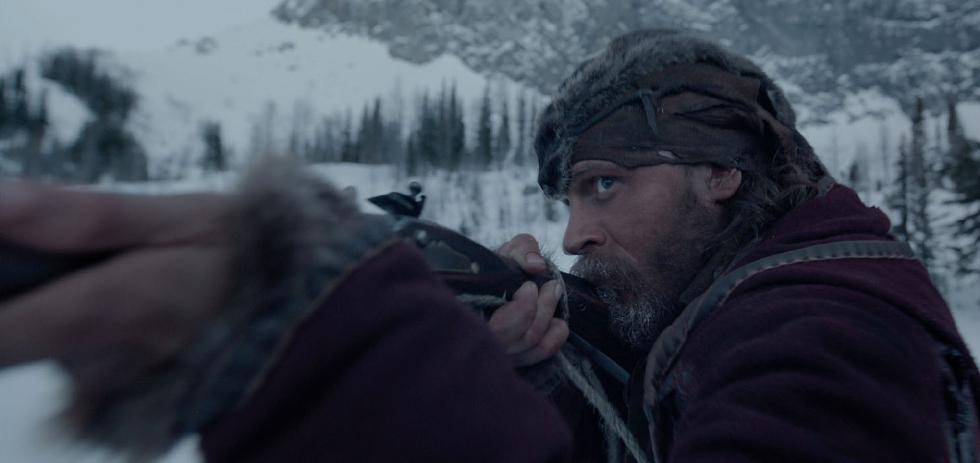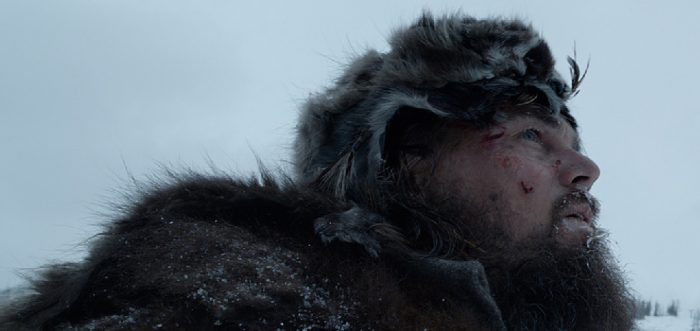
Why, in the television age of the anti-hero, does popular American cinema defiantly keep out of step with its nuanced and complex small-screen counterpart? On TV we sit attentively through long-form tales of broken men and difficult women. We tolerate protagonists who murder and rape, and we relish unprecedented violence and deceit in a medium still struggling to define its aesthetic. Perhaps we even use that as an excuse. On multiplex screens our heroes are boundless in strength and ingenuity and enterprise. They waltz through chaos in deep space or untamed wilderness with unquestioned vigour and inventiveness and irrepressible optimism, and we devour it. As TV enjoys its Renaissance, the movies all but bluster through this decadent period. Most of the time, as in the case of Matt Damon in The Martian, Chris Pratt in Guardians of the Galaxy and Jurassic World, or Paul Rudd in Ant-Man, their sugary flatness goes almost completely unquestioned. For other films, most often when the hero is a woman, as in the case of Daisy Ridley in Star Wars: The Force Awakens or Sandra Bullock in Gravity, callous pundits run with a lazy critique: how could it be possible for a woman to be so blatantly heroic, so unbelievably industrious? No such questioning seems to have been been thrown at the sinless and resourceful Hugh Glass, a frontier survivalist played with flushes of intensity by an all-too-willing Leonardo DiCaprio in Alejandro Gonzáles Iñárritu’s testosterone-steeped The Revenant, a film symptomatic of the movie industry’s high premium on hyper-masculinity.
It’s almost impossible to take on The Revenant without reckoning with its sycophantic Oscar campaign and the cheap rhetoric that follows it around like a bad smell. Iñárritu, his trifecta of Birdman statuettes still dustless on the mantle, has apparently directed a film purpose-built to win DiCaprio the Oscar that is rightfully his, entitled to by decree of popular opinion. And so, as is the norm for campaigns of this kind, Iñárritu has played fabulist to the media, spinning unfathomable yarns of hardship and endurance from his set: DiCaprio gobbled raw bison liver and slept inside a hollowed horse carcass to stay warm and survive! So? Isn’t the entire point of movie magic that our millionaire stars can save themselves the trouble of sharing in the travails of the characters they play? In the case of The Revenant — which sits somewhere between action spectacular and tedious prestige pic — it would be wise to differentiate between the physical performance of survival (and the acts of physical reciprocity that the Academy seems to cherish so dearly) and actual characterisation, of which, in The Revenant, there is actually very little.
In addition, Iñárritu has given this true story several fictional appendages — or, rather, fantasy elements — that overstate the inherent goodness of its protagonist. Glass has a mixed race child with a now-deceased Native American woman, and he can speak fluently in her Pawnee tongue. This all reeks of altruistic revisionism, and it jumbles the genuine history of the period. DiCaprio’s Hugh Glass is faultless, blind to race, absolved from the sins of colonialism, and illimitable in initiative and cunning. Despite being inspired by a real frontier survivor, he’s as pure a fantasy as a CGI superhero, his only Kryptonite bad luck with caniforms. DiCaprio performs his absurd and near-wordless endurance feat as best he can, but he’s prostrate and breathless for most of the film, and the construction and development of his character is left almost entirely up to Iñárritu’s pseudo-Malickian directorial flourishes.
There is a silver lining. The Revenant contains three good scenes. The first is its opening, wherein a vast bivouac of white frontier explorers are ambushed by Pawnee warriors. Emmanuel Lubezki’s steadicam juggernauts though the action in miraculous and sparing long-take in a bit of startling action choreography that’s in the tradition of Chimes at Midnight’s near-apocalyptic Battle of Shrewsbury, or the blood-strewn Omaha beach landing in Saving Private Ryan. The second good scene you’ve by now heard about. In it, a big, protective mother bear ferociously mauls Glass, defending her cubs against his imperialist zeal for gunfire. The third is a gruesome brawl set upon bristly mountains and dirty snow that occurs right at the end of the film. It’s as playfully violent as Tarantino with a visual inflection of Altman’s McCabe & Mrs. Miller. These scenes work because they’re organic to the story, and grounded in action. Not ill-devised and schematic genre-revisionism, not self-important profundity, just visceral, physical resilience. In these moments it’s distinctly clear that The Revenant would have made a great pulpy genre film, had Iñárritu narrowed his scope and retired the valour and ho-hum mysticism that he leans so heavily against. Tom Hardy, who plays the film’s baddie with comical zeal, is almost certainly participating in that more playful tradition.

What’s also blindingly clear is that Iñárritu struggles to define his own individual style without looking to and imitating his peers and idols. The good scenes — those mentioned above — feel more like countryman Alfonso Cuaron than pure Iñárritu. The bad scenes are wearisome and an unmistakable Terrence Malick imitation: recurring flashbacks to Glass’s wife’s death paint her, the only female character in the entire film, as a talisman of grace and passivity (no joke, a bird flies out of her wounded chest as she hovers above the ground). Elsewhere, his fixation on the natural environment — cue trickling water, embers dancing in the atmosphere, trees from low angles — as shot by Lubezki, Malick’s regular DP, are only momentarily impressive before they start to weigh it down, dragging proceedings to a glacial pace that persists well into its two-and-a-half hour runtime. Iñárritu’s penchant for long-takes, perhaps a lingering Birdman tendency, doesn’t help. While they might enliven certain banalities, they make dialogue an arduous bore. We have to wait for Lubezki to revolve around conversations where a simple shot-reverse shot structure would have easily sufficed. Iñárritu’s rebellious determination has clouded his grasp on basic film form, and his one-take mania has transmuted into a failure to edit with necessity.
Sure, The Revenant is as grandiose and grisly as cinema gets, but it’s also long and arduous, puffed up with a profundity that’s well beyond its purview, and clouded by the same one-upmanship that hampers its absurdly testosterone-mad characters. It’s a laborious dredge through the hinterlands of sweaty, bloody machismo, with all the makings of a frontier western, an excitable revision of John Wayne’s vengeful streak. But don’t call it that. “I don’t consider my film a Western”, Iñárritu recently told Financial Times. “Western is in a way a genre, and the problem with genres is that it comes from the word ‘generic’, and I feel this that film is very far from generic.” He added: “This film deserves to be watched in a temple.” These brazen proclamations dictate an tiresome awards season narrative and mirror The Revenant’s self-perpetuated sense of scale and intensity. In reality, Iñárritu’s film has a few brief moments of promise, revelation and sheer visceral gratification, but it’s ultimately bloated with artless mimicry and an acrid sense of self-importance that its director continues to participate in long after the credits roll.
Around the Staff
| Brad Mariano | |
| Felix Hubble | |
